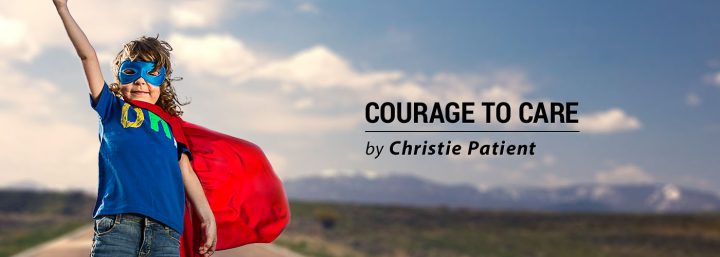To the Brink and Back: How Caregiving Strengthened Our Relationship

A Yiddish proverb states, “When a father gives to his son, both laugh; when a son gives to his father, both cry.” This is true when giving gifts of time, energy, and love, as in caregiving. A parent caring for a child is an act of creation. To raise a child is to build a whole universe together from nothing. Children are happy to receive, and parents are happy to give love and nurturing, play and adventures, lessons and morals. Though I am not a parent, I am certain that all parents have many moments of weakness and tears. But even on bad days, parents continue to provide for their children, and most are happy to do so. There is joy in creation.
A child caring for a parent in poor health is a great unmaking. The reversal of roles removes the veil of strength that parents use to hide the pain. A child can’t mask their pain in the way that a parent can keep their child in blissful ignorance when burdens mount. Likewise, a parent cannot maintain the mask of fortitude when facing their mortality. It is no small task to accept the reversal of dependence. The relationship dynamics cannot change without some tears from both parties.
Whether we realize it or not, most of us have a subconscious belief that our parents are invincible. They are our whole world from day one. They shape us into who we become. They’ve always been there, and even though we know it isn’t true, we want to believe they always will be. Most humans that survive childhood have lost or will lose their parents. We all know this. But until you are looking that reality in the face, it is nothing more than a sad game of make-believe.
The true weight of that loss can only be realized when it happens. I can’t claim to know what it feels like, but I have gone to the edge of that precipice and waited there for either the inevitable or a miracle. Luckily, we got the miracle, but my innocence did not survive the wait.
In that waiting, I remember feeling incredibly lonely. For months, my mom’s health had been declining at a noticeable pace, and I felt a constant undercurrent of dread. I knew where her illness was leading her even if my subconscious wouldn’t let me fully feel or accept the idea of her dying. It was only when my mom’s idiopathic pulmonary fibrosis took a sudden, final turn for the worse that the dread coagulated into a substantial thought. I remember telling my husband, “I know everyone loses their parents but it’s the loneliest feeling in the world to face losing mine.”
You would think that we would all be able to relate to each other on this one universal truth, but I felt isolated. No one on earth could understand how I would feel losing my mom. Our relationship is singular. She is my only mother, and I am her only child. While all relationships, and thus all losses, are unique, it is a particularly isolating grief to be an only child contemplating the death of a parent.
But, thanks to my mom’s double-lung transplant, I haven’t had to suffer that loss. And by facing it, and caring for my mom before and after her transplant, we became closer. In the months before her transplant, we welcomed vulnerability. We spoke honestly about old wounds and how we’ve healed them. We cared for each other and grew through it. I found new strength and softness as I bounced from advocating for my mom to rubbing her feet, or from helping her walk to combing her hair.
We struggled plenty, but we also celebrated. The smallest victories mattered just as much as the big ones because each was a step toward life. After her transplant, our daily routines felt more like small rituals. Nothing ever felt like a chore. I enjoyed helping my mom get dressed, preparing her meals, sorting her medications, and going for walks. It made me feel like a protector to walk beside or behind her in case she stumbled or grew tired. I now understand all the times she wanted me within arm’s reach as I explored a rocky ledge, or hissed in fear when I would lean too far forward on the chairlift.
By sharing this experience, we know each other better as adults. Equals. Being one of my mom’s caregivers was an opportunity for growth. It was a catalyst for a deeper relationship. And as far as the proverb goes, it is true that this child caring for her parent caused us both to cry, but we laughed, too.
***
Note: Pulmonary Fibrosis News is strictly a news and information website about the disease. It does not provide medical advice, diagnosis, or treatment. This content is not intended to be a substitute for professional medical advice, diagnosis, or treatment. Always seek the advice of your physician or other qualified health provider with any questions you may have regarding a medical condition. Never disregard professional medical advice or delay in seeking it because of something you have read on this website. The opinions expressed in this column are not those of Pulmonary Fibrosis News or its parent company, Bionews Services, and are intended to spark discussion about issues pertaining to pulmonary fibrosis.







Kris
Christie, that was absolutely amazing. I loved the article. God bless?